What if you saw yourself like your loved ones see you?
I was putting my son to bed recently, and he was having a difficult time. His young self was upset with a mistake he had made.
It was a very small mistake. He didn’t get in trouble for it. Nobody was upset, hurt or angry. But he was treating himself as if he had physically harmed someone else.
He looked at me and asked whether I think he’s too hard on himself.
I know he knows the answer, because we’ve talked about this many times. However, maybe he needed to hear it again. So I said yes, I do think he is too hard on himself.
Then he asked where he gets it from. He knows the answer to this as well. Both my husband and I have shared with him a few times that I am the same way with myself. Yet, again I answered.
In all sincerity, he looked at me and asked incredulously, “Why are you hard on yourself?”
He said it in a way that he truly didn’t understand why I’d be hard on myself. He is my son, my baby boy, who adores me.
From the beginning of his life, he’s been my sidekick. He has quite literally chosen to be with me instead of friends quite a few times during his life thus far.

My son sees me in a different light than I see myself. He sees good things.
I’m thankful for that. It left me wondering, though, why am I so hard on myself? More importantly, how can I start being kinder to me and teach my son to do the same?
What being hard on yourself looks like
I can’t speak for everyone; I can only tell you what being hard on yourself looks like for me. Unfortunately I see my son doing some of these same things, and it breaks my heart. He is a chip off the old block, so to speak.
Being hard on myself means that when I make a small mistake, I chastise myself as if I have committed a grave error that will affect the rest of humanity for the rest of known time. I ruminate on the mistake.
My critical inner voice says really mean things to myself about me. While I consider myself an encourager to others, I am proficient in negative self-talk and negative thinking. In fact, I think I often speak words of encouragement to others because I so constantly need them.
Yet when someone does compliment or encourage me, I struggle to believe them.
For me, being hard on yourself means that no matter what you do, it’s never enough. I always find myself wanting.
I struggle to acknowledge the good things I’ve done and focus instead on the negative things. While I might accomplish many things in a day, I focus instead on where I failed and the tasks I didn’t get to.
Another way I’m hard on myself is in taking responsibility for when things go wrong or a family member is upset — even when there is no possible way I’m the cause.
I remember doing this even as a child. When I came home from school and my mom had had a bad day at work, I felt like I was responsible.
(And I have an incredibly sweet mother who has always been a positive influence in my life. She didn’t take her bad days out on me in any way. I could just sense her feelings and somehow felt I was at fault.)
The truth behind being hard on yourself
I won’t pretend to know the truth on why all people are hard on themselves. I don’t even fully understand why for myself.
Instead, I suspect a lot of it (for me, at least) stems from two things: being a people pleaser and a perfectionist.
While I think I’m not a people pleaser so much these days, the truth is I am. I don’t like conflict.
As someone who is sensitive to others, I don’t like negative emotions. (Who does?! But, I often quite literally feel what those near me are feeling.)
I don’t care what people think about things like what I’m wearing or doing. I’m comfortable in my own skin.
However, I really don’t want to upset people around me. I avoid conflict like the plague.
So, I guess you could say that I am a people pleaser, even though I don’t want to admit that.
Then there’s the perfectionist side of me, which goes along with people pleasing. I have high standards and want things to be just so.
More than anything, I want to be the best version of myself and who I expect me to be. However, sometimes I set a much higher standard that conflicts with who I actually am.
I’m a quiet introvert. Sometimes I’d love to be gregarious extrovert who confidently walks into a room and chats kindly with everyone they see. I set high expectations I could never meet.
Even though I know that isn’t me, I’m often hard on myself when I do just the opposite. As I slump into a room, hope nobody notices me, find a friend I can latch on to and then count the time until I can escape, I am simultaneously mad at myself for not being different.
My perfectionism usually has way less to do with physical attributes and things as much as it does with myself. I want to be perfect, but I am not. I fail and come up short. So then I’m hard on myself.
Learning to be kinder to yourself
I am a work in progress. I certainly haven’t conquered being hard on myself. But I am working on it. It is definitely a learning process.
I noticed how I was being hard on myself even more after having children. Then I really paid attention when I saw my kiddos being the same way.
My daughter has been hard on herself for sure, but my son amps up to my level of being hard on himself. His inner critic is quite harsh.
Like so many things, my desire to improve myself stems from seeing the same struggle in my child and wanting to be better for him. So, I’m working on it.
Doing the best that I can
A few things have helped me give old Stacey a break and not be so stinking hard on her all the time.
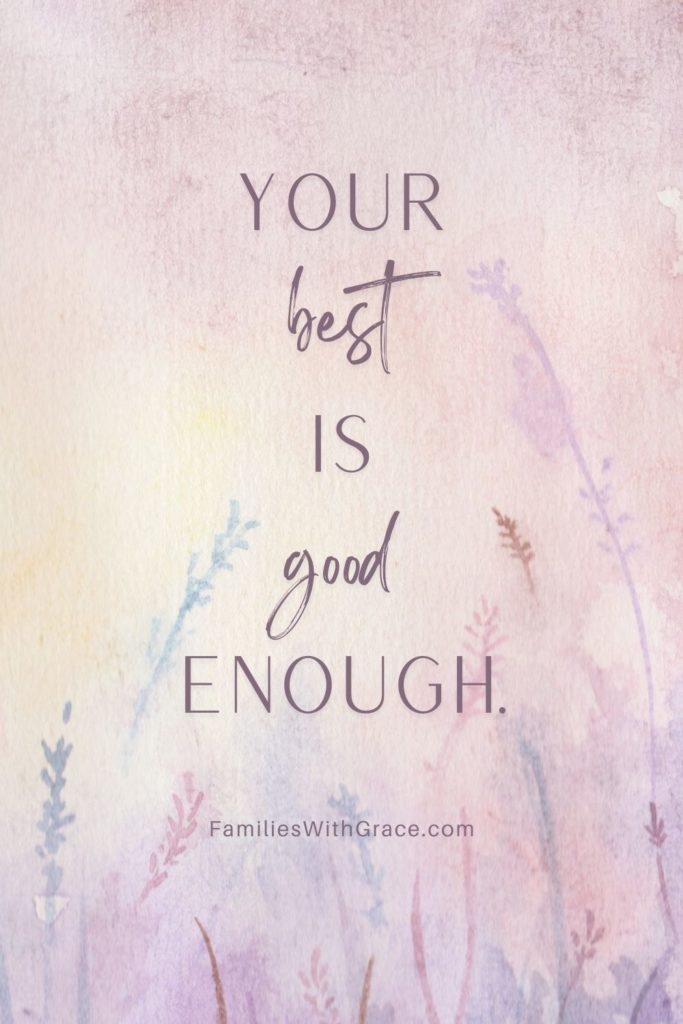
The first is reminding myself I’m doing the best that I can. Overall, I really am doing the best that I can at any given time.
Yes, there are times I could probably put in more effort, but most of the time I have given my all and that has to be enough. Because it’s all that I have to give.
Often I repeat to myself when I start getting mean inside my head: “I’m doing the best that I can.”
I tell my son the same thing. As a dyslexic, he can be very hard on himself about reading and spelling. He wants to always have perfect scores on assignments and tests.
I can only begin to imagine how frustrating it is when words are everywhere and everyone else reads them with ease while you struggle.
I remind him often that his dad, teachers and I only expect him to do his best. His best is good enough. He is doing his best, and that’s all that matters.
I want him to learn those lessons early in life for his own mental health and personal growth. My husband and I are doing our best to be positive influences in his life to help him overcome his own negative feelings.
Letting go of perfection
The other thing that I strive to remind myself is I’m not perfect. While I know I’m not perfect, I often behave and treat myself in the opposite fashion. I need to cut myself some slack in my own thoughts.
When my negative thoughts threaten to take over, I strive to remind myself that I a human being and am going to make mistakes. And that’s OK — truly OK.
I’ve also realized the good that comes from not being perfect and shared that with my son the other night. I told him he isn’t perfect. And neither am I. None of us are.
If we were perfect, we wouldn’t need Jesus. He hadn’t thought of it that way before.
I don’t want to go through this life without Jesus. He has seen me through so many things and loves me in ways I don’t understand.
If I were perfect, I wouldn’t need Him. I don’t want to imagine what that would be like. Truly, I don’t.
So not being perfect really is OK. His strength is made perfect in my weakness (2 Corinthians 12:9).

Seeing you as others do
Finally, I’ve been thinking about what if I saw myself the way my son does. What if he saw himself the way I do? How would that change our opinions of ourselves?
I don’t think I’d be as hard on myself; neither would he. We would get a bigger picture view of ourselves that is more well-rounded.
When I look at my baby boy, I saw a young man who is persistent, kind, empathetic, caring, sweet, hilarious, thoughtful and so much more. He can solve problems and come up with solutions better than anyone I know.
He thinks outside of the box. I often refer to him as “my little man with a plan,” because of how his mind works. There is no way I’d trade him for any other son. He is just right!
I can’t tell you exactly how he sees me. But, I hope my family sees I love them and am trying every single day to do my best for them. I want to be their support system and soft place to fall.
My desire is to encourage them and uplift them. Hopefully, they see my sensitivity, my empathy and my love for Jesus.
Perhaps they see the strength I’ve used to overcome various challenges. I have good qualities. I need to do is focus on those more often.
Can you imagine how much my attitude would change if I allowed myself to peak at the good things God sees in me? He truly knows me. Even in my relationship with Him, I can imagine Him shaking His head at my faults.
But He knows we aren’t perfect. He sent His Son to die because of how much He knows this! He is a loving Father who sees us as a whole person and someone worthy of love.
Just like I see the struggles and faults my kids have, I also see much more the goodness and strengths they have.
Next time you are being hard on yourself, remember that you are doing the best you can and you aren’t perfect. Then take a moment to step back and look at yourself the way those who love you — including your heavenly Father — do.
I’m going to do the same thing. And if we do this on a regular basis, little by little our old habit of negative self-talk with dissolve.
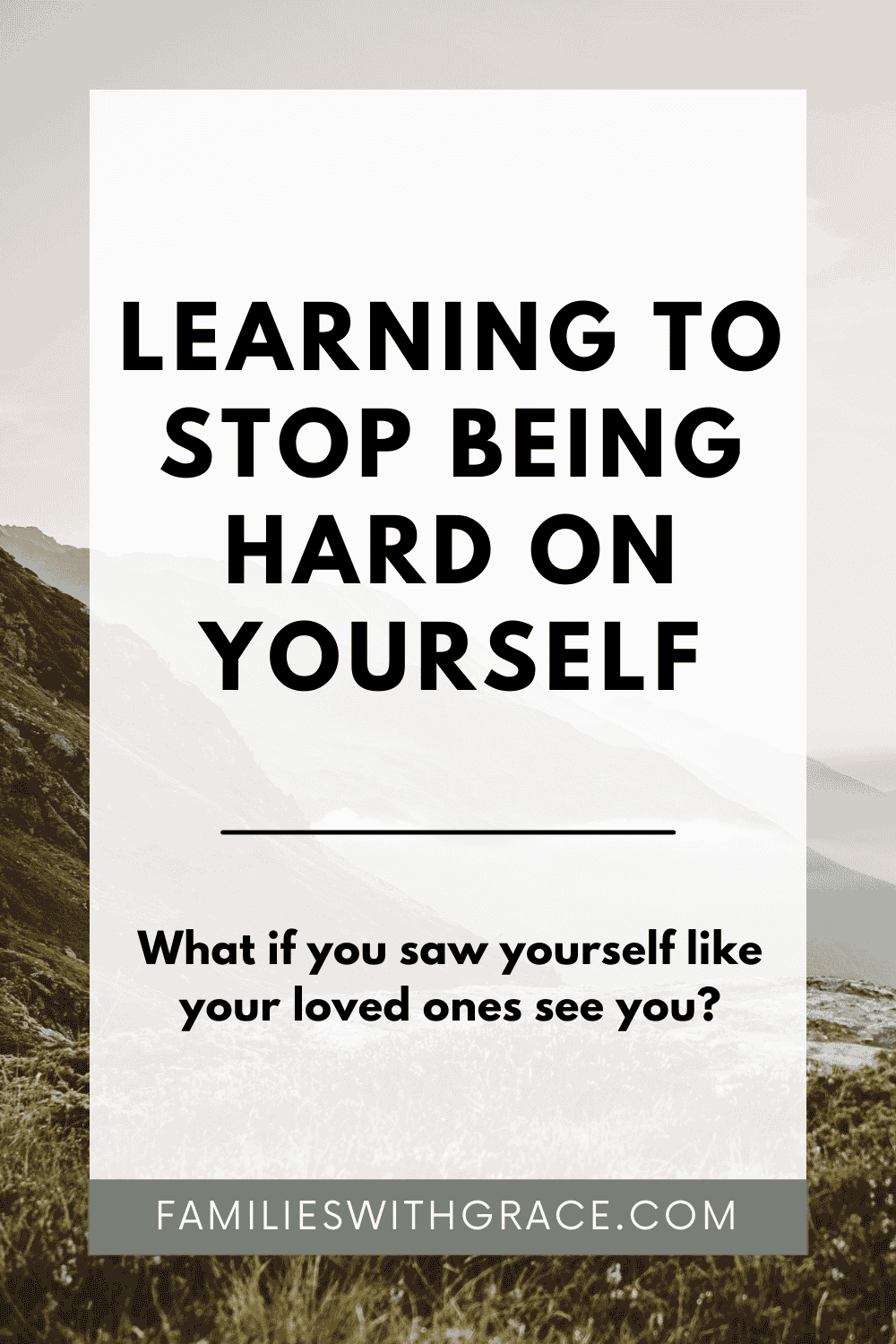
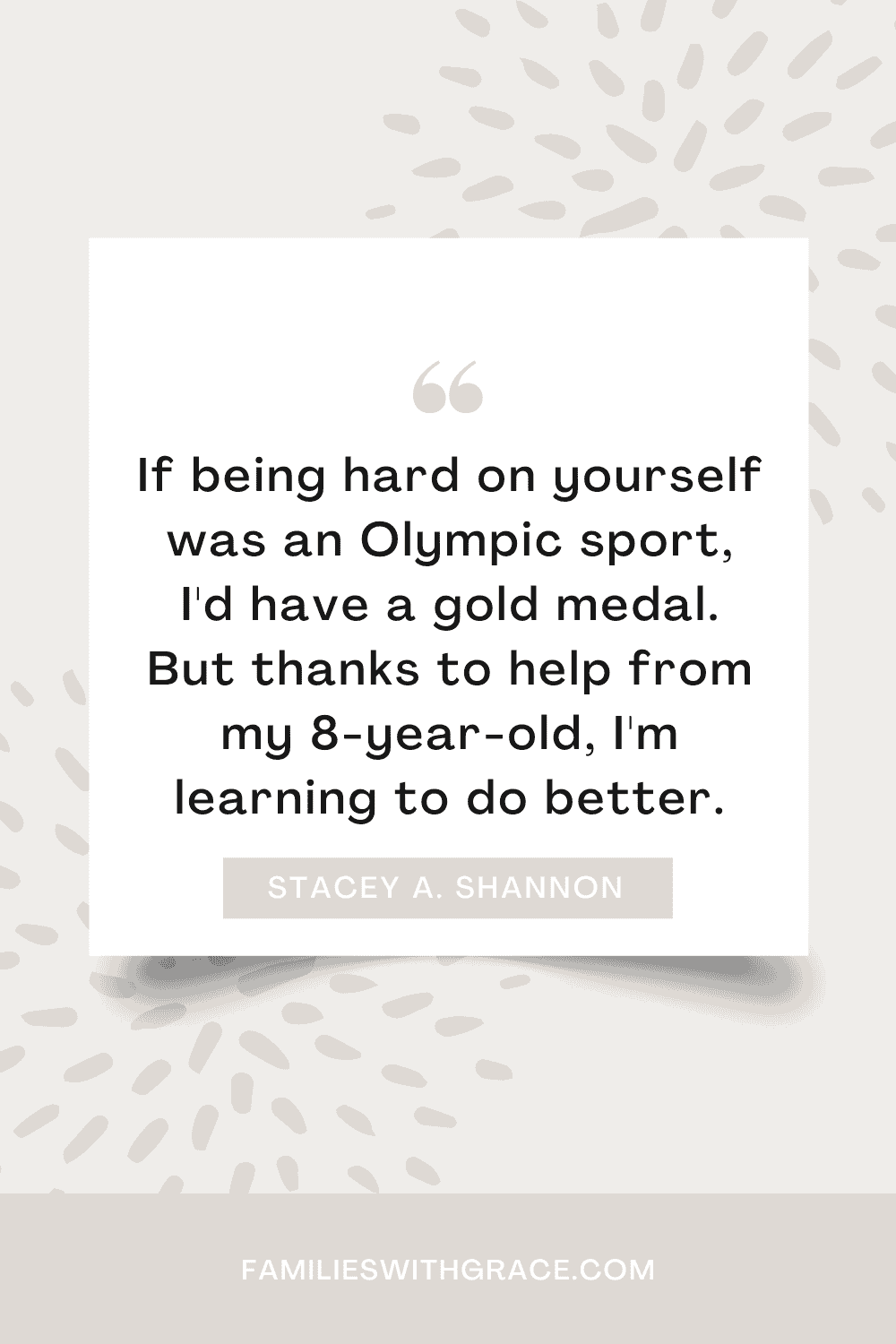


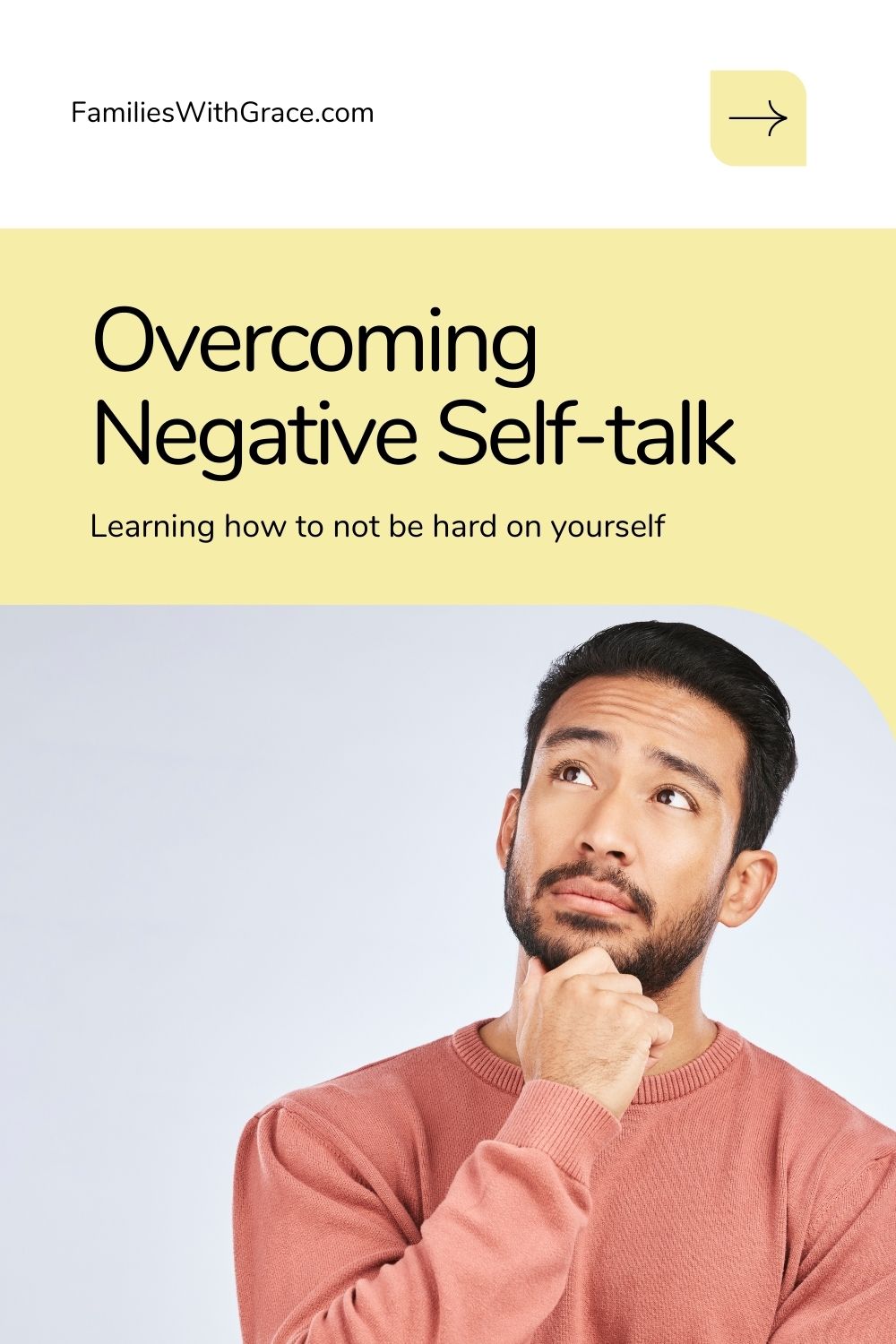
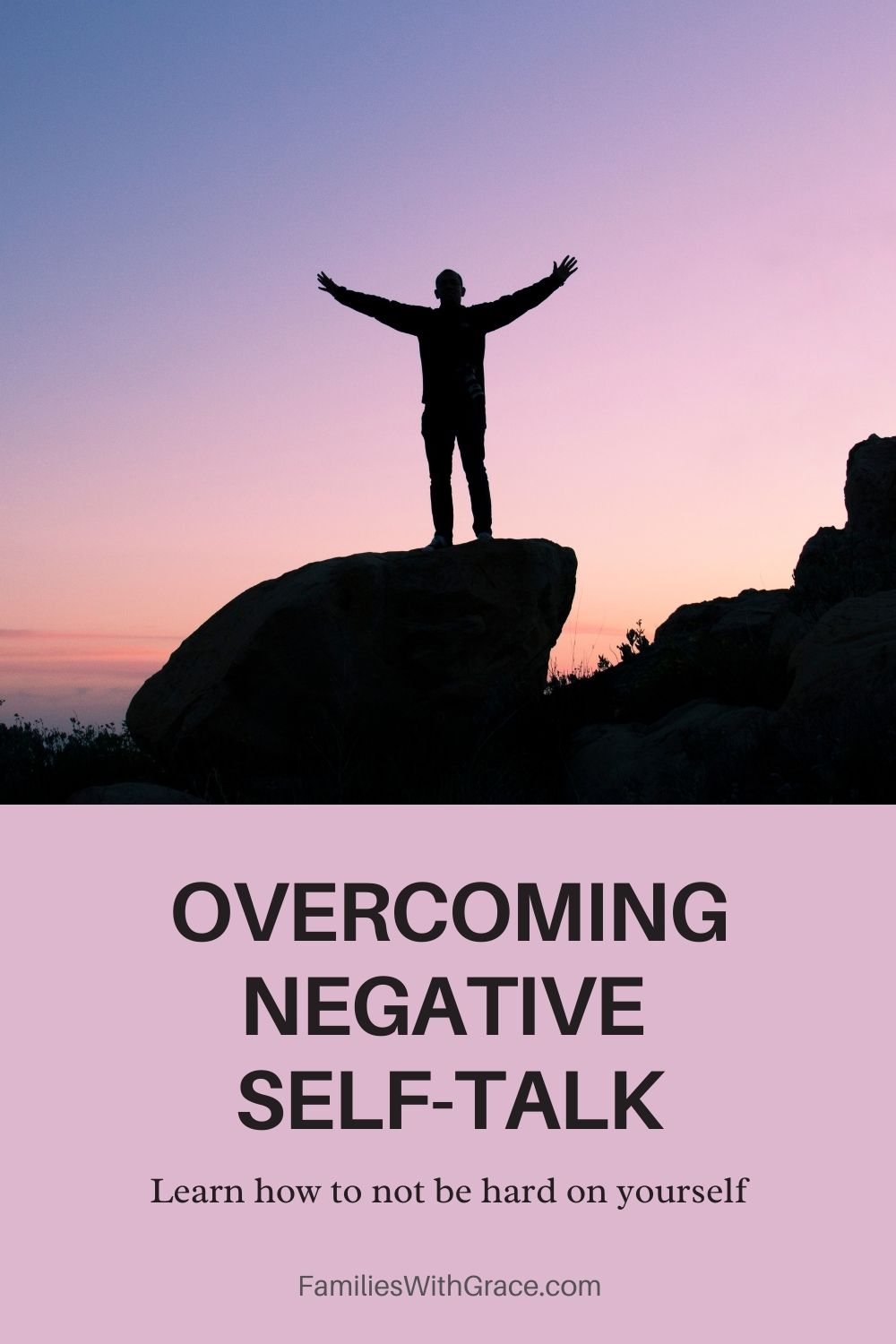

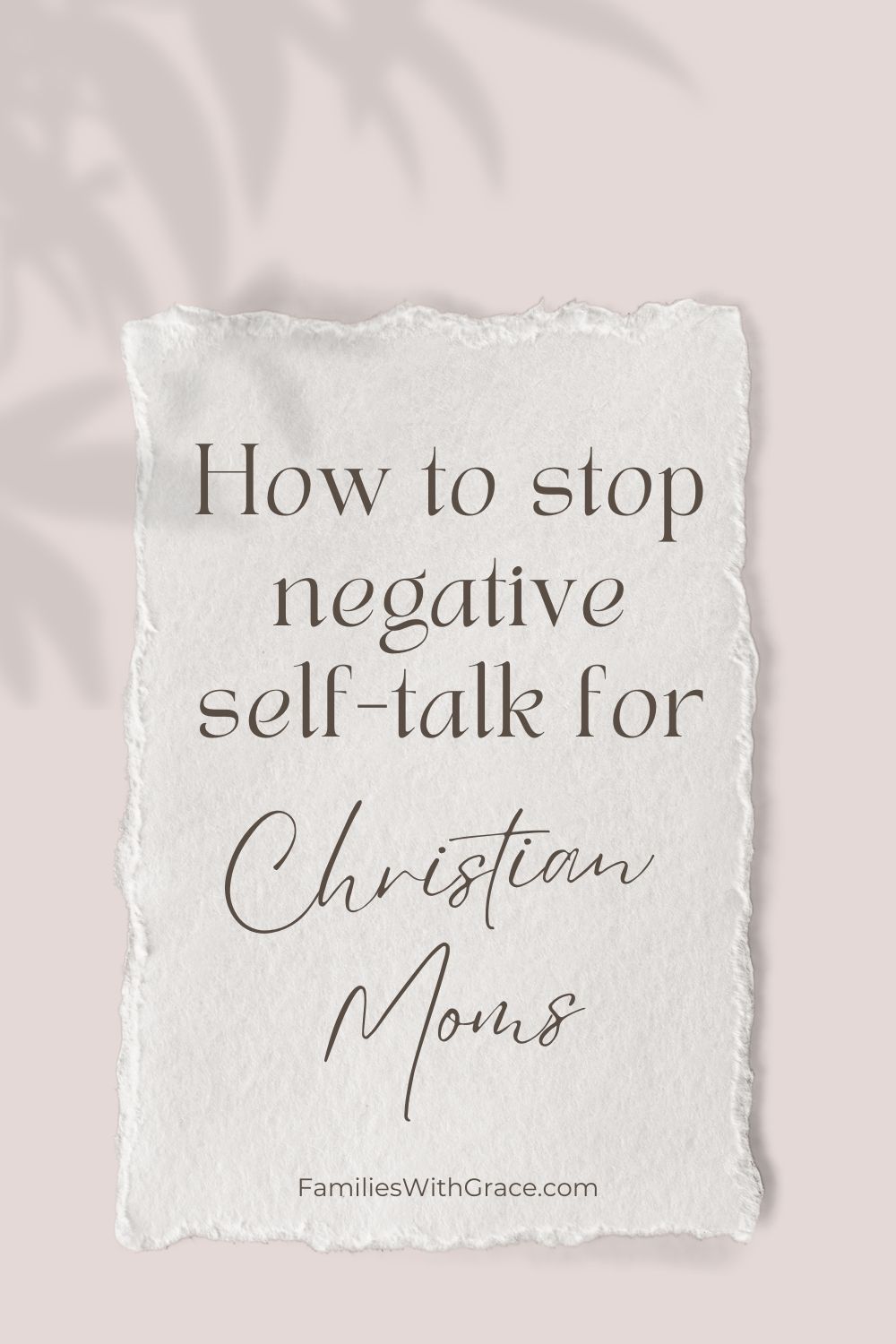
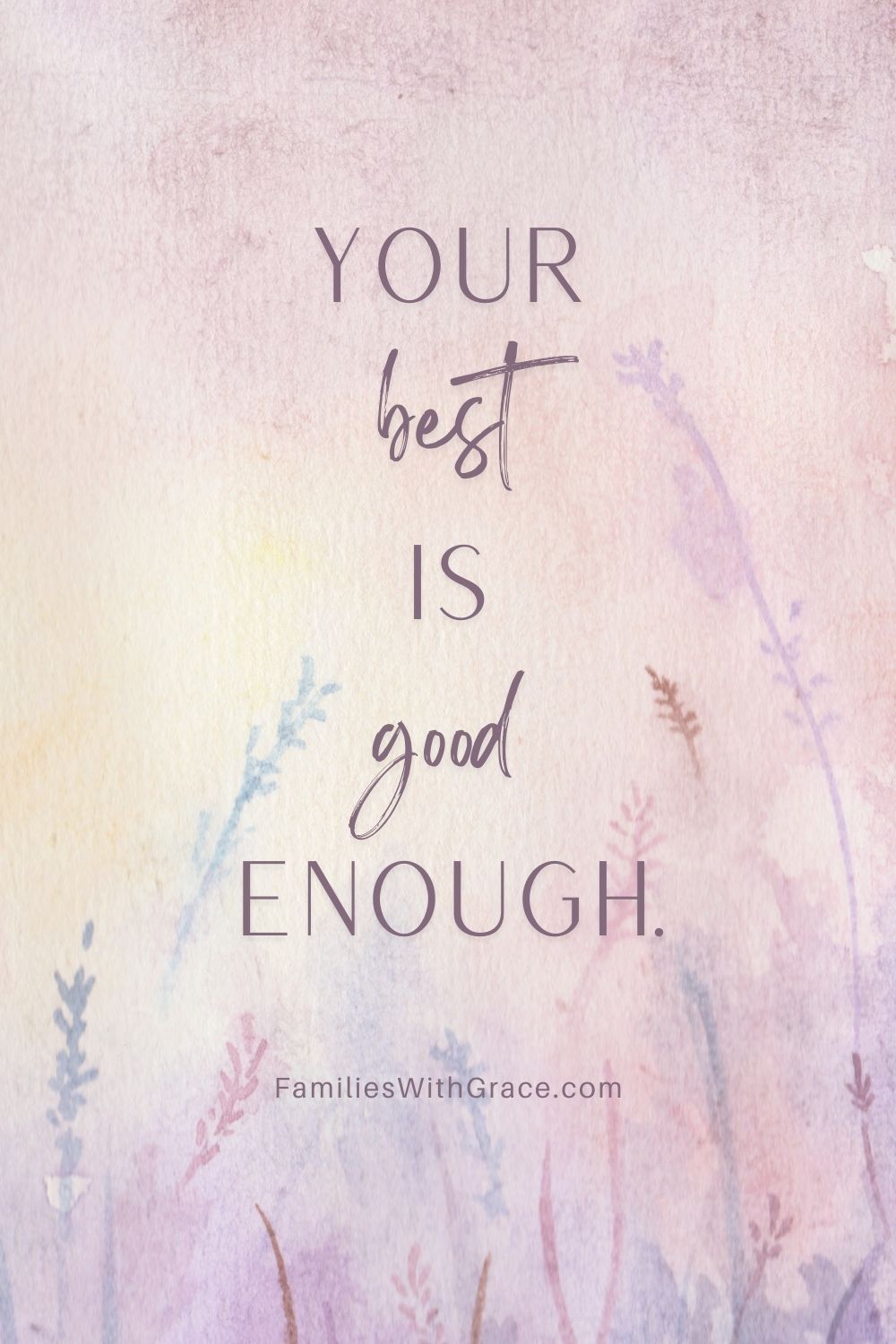



One thought on “Learning how to not be hard on yourself”
Comments are closed.